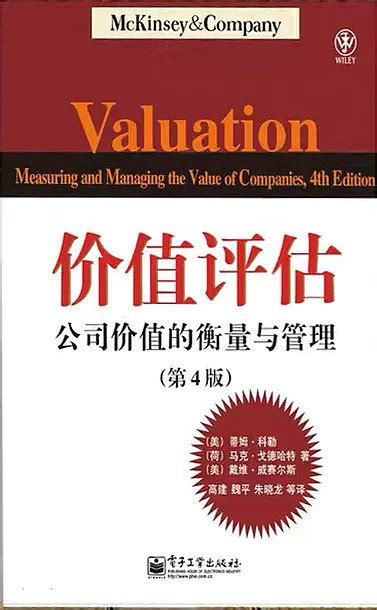富国基金海外部基金经理有谁
Fund managers play a crucial role in the financial markets, and their responsibilities typically include:
Do Foreign Countries Have Fund Managers?

- Venture Capital Managers: Manage venture capital funds, which invest in earlystage and growthstage companies with high growth potential.
- Performance Monitoring: Fund managers continuously monitor the performance of the funds they manage and assess the impact of market conditions, economic trends, and other factors on investment outcomes. They adjust their investment strategies as needed to achieve desired performance targets.
Yes, foreign countries also have fund managers. The role of a fund manager is to oversee and actively manage a portfolio of investments on behalf of clients, whether they are individuals, institutions, or organizations. Fund managers are responsible for making investment decisions, implementing investment strategies, and monitoring the performance of the funds they manage.
Fund managers play a vital role in the global financial system by managing investment portfolios, generating returns, and helping investors achieve their financial goals. Whether it's mutual funds, hedge funds, private equity, or venture capital, fund managers operate across various sectors and asset classes, providing investment expertise and professional guidance to clients worldwide.
With the globalization of financial markets, many fund management firms operate internationally and manage funds across different countries and regions. They may have offices, investment teams, and clients in multiple countries, allowing investors to access a diverse range of investment opportunities.
In many countries, fund managers are subject to regulatory oversight by government authorities or financial regulatory bodies. Regulatory requirements may include licensing, registration, disclosure of information, compliance with investment guidelines, and adherence to ethical standards.
There are various types of fund managers catering to different segments of the investment market:
股市动态
MORE>-

火灾赔偿标准一览表
火灾保险赔偿标准火灾保险是一种重要的财产保险形式,旨在保护被保险人免...
-

深度解析航天电子的投资价值与未来潜力
对于许多投资者来说,选择正确的股票进行投资不仅是艺术,更是科学,在众...
-

深度解析豫光金铅,行业龙头,黄金矿业的投资潜力与风险探析
一、公司概述:豫光金铅,全称为河南豫光金铅股份有限公司,作为国内领先...
-

深度解析与投资攻略,三丰智能——探索智能化转型的科技巨头
公司简介三丰智能,一家专注于智能制造领域的高新技术企业,以其卓越的自...
-

深度解析东方国信,一只潜力与挑战并存的股市明珠
在风云变幻的股票市场中,东方国信无疑是一颗熠熠生辉的明星,以其稳健的...
- 搜索
- 最近发表
-
- 深入了解股票分析系统的功能模块,投资者的智能助手
- 探索688077,解锁科技新纪元的钥匙
- 综合保险查询,全面了解您的保障
- 东莞疫情新动态,新增1例无症状感染者,市民需保持警惕并加强防护
- 股票在线诊断软件,投资者的智能助手
- 探索铁路股,投资的铁轨与机遇
- 宁波联合(600051)深入解析与投资价值评估
- 同花顺个股分析网,投资者的智能助手
- 深入了解600705,最新动态与投资洞察
- 深入解析同花顺,如何找到并利用个股分析功能
- 辽宁疫情新动态,昨日新增7例本土无症状感染者深度解析
- 2021年端午节,传统与现代的交融
- 探索太平洋A股,投资海洋中的宝藏
- 药石转债,投资新机遇与风险分析
- 股票分析师的工作内容有哪些
- 大晟文化股票诊断,深入分析与投资策略
- 数字密码,解析688209背后的神秘故事
- 辽宁职校封闭管理下的病毒破防,疫情应对与心理调适指南
- 红太阳(000525)探索中国农药行业的领军企业
- 深入解析,股票诊断分析的艺术与科学
- 标签列表
-
- 兴业银行理财月月得益赎回规定 (4)
- 英伟达市值涨了多少倍 (4)
- 博时月月享基金安全吗 (4)
- 港股恒指遭遇重挫跌46% (5)
- 港股恒指怎么交易需要多少资金 (4)
- 主力资金净流入排行榜 (5)
- 股票财经方面有哪些 (13)
- 财经股票基础知识 (6)
- 最好的股票财经网 (8)
- 财经与股票 (10)
- 财经讲股票的栏目 (8)
- 谈论股票的财经频道 (7)
- 财经a股 (5)
- 财经类股票 (13)
- 股票初学者相关财经知识 (6)
- 财经诊股 (5)
- 财经类股票网站 (5)
- 财经股票入门基础知识 (4)
- 股票财经推荐 (5)
- 港股午评:恒指跌3.87%失守24000点 (4)
- 永赢基金行情 (4)
- 股票财经 (6)
- 财经股票怎么玩赚钱 (5)
- 财经股市大家谈 (5)
- 港股恒指今日收盘走势 (4)
